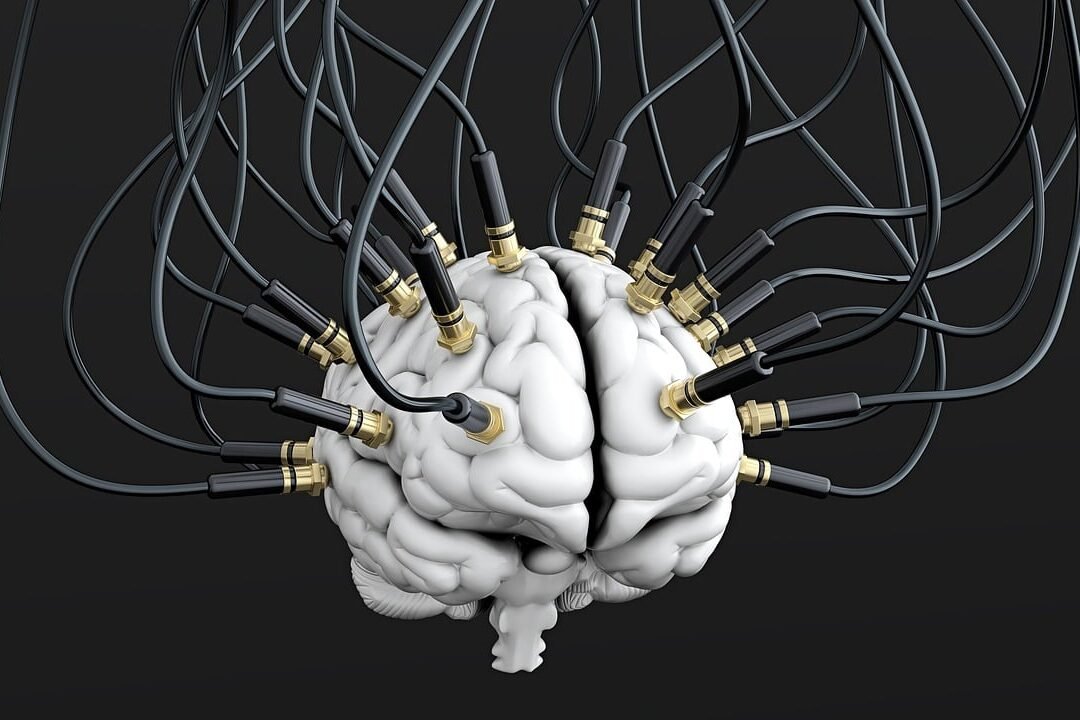Learning a Language Overnight Sounds Like a Dream—Until It Isn’t

The new brain implant technology boasts the ability to upload entire skill sets—like a new language—straight into your brain. You could go to bed not knowing a word of Mandarin and wake up fluent. It’s the kind of advancement sci-fi fans have fantasized about for years. No textbooks, no tutors, just instant knowledge delivered via microchips embedded into neural circuits. On paper, it sounds miraculous—efficiency elevated to superhuman levels.
But there’s a dark undercurrent beneath the convenience. Users report disorientation, emotional detachment, and even identity confusion after undergoing the upload process. It’s as if the brain doesn’t know how to process “borrowed” knowledge. Learning isn’t just data transfer—it’s emotional context, trial and error, memory. When you skip the effort, something human gets lost. You may speak the language, but do you understand it culturally or emotionally? These implants might teach your brain the what, but never the why. And the cost of bypassing the natural learning process could be losing touch with how we form meaning at all.
The Upload Process Feels Like a Seizure Wrapped in a Power Surge
Instant knowledge doesn’t come gently. Early users describe the implantation and upload process as mentally invasive and physically draining. The moment of upload has been likened to a lightning bolt firing through the brain—jolting, overpowering, and uncontrollable. Some compare it to a seizure, complete with muscle spasms, cold sweats, and temporary memory loss.
And it doesn’t stop once the data is installed. Users often experience migraines, nausea, and intense fatigue for days. Some even report waking up unsure of where—or who—they are. The body reacts violently to the unnatural surge of neural rewiring. There’s also the psychological toll: if your memories feel foreign, are they even yours? What happens when your brain holds information that you never earned? There’s a growing fear that these uploads change more than what we know—they change who we are. Learning isn’t supposed to be trauma.
You Learn Faster, But You Feel Less Human
With the implant, there’s no delay between intention and execution. Want to cook French cuisine? Download the skill. Want to code in Python? Plug in and learn in ten minutes. For busy professionals and productivity junkies, it’s a game-changer. But this hyper-efficiency comes at a steep existential cost.
The more you use the implant, the more detached you feel from your own accomplishments. Users say they feel like spectators in their own lives—watching skills unfold that they didn’t earn. The joy of discovery, the satisfaction of mastering something slowly, all of it disappears. You may have the knowledge, but you lack the emotional muscle memory that comes with real learning. It feels hollow, robotic, scripted. Over time, users report feeling disconnected from their passions and unsure of their actual interests. After all, when learning is instant, what’s worth striving for?
Memory Overwrites Are Real—and Dangerous
One of the most alarming reports from implant users is the phenomenon of “memory overwrite.” In some cases, newly uploaded knowledge replaces or distorts older memories. A woman who uploaded historical facts about 18th-century France found herself forgetting the names of her childhood friends. Another user described losing the emotional memory of his wedding while gaining perfect recall of calculus.
The human brain isn’t a hard drive—it’s a living, breathing, emotional archive. When data gets crammed into it artificially, it doesn’t just sit neatly in a folder. It floods the system, sometimes displacing things that truly matter. While the company behind the implants claims these instances are rare, they’re becoming hard to ignore. Some scientists fear that with enough use, the implant could slowly erase your personal history in favor of practical knowledge. What’s the use of knowing ten languages if you can’t remember your mother’s voice? This tech may be rewriting more than memory—it might be rewriting identity.
Side Effect: You Become Addicted to Being Better
Once you experience instant learning, traditional growth feels agonizingly slow. Users describe an insatiable desire to keep uploading new skills, new facts, new tricks. It’s like upgrading a video game character—you get a rush every time you level up. But with every new download, there’s a deeper craving for more.
This addiction to self-optimization has a downside. People begin to fear being without the implant. They feel incompetent without it, like a superhero stripped of their powers. Relationships suffer as people isolate themselves to pursue more uploads. Hobbies lose meaning when there’s no challenge left. One therapist said her client became obsessed with “versioning”—constantly upgrading himself to stay competitive in his job, but emotionally checked out everywhere else. The implant turns growth into compulsion, and curiosity into dependency.
It’s a Hacker’s Paradise—and Your Mind Is the Prize
With your brain connected to a wireless implant, hacking isn’t just a possibility—it’s a nightmare waiting to happen. Security experts warn that anything connected to the cloud is vulnerable, and your thoughts are now part of that system. The idea that someone could intercept, manipulate, or delete your memories isn’t just dystopian—it’s dangerously close to reality.
Think about it: political groups could rewrite your ideologies. Corporations could upload brand loyalty. Governments could silence dissent—not with threats, but with memory modification. Already, there are whispers of experimental “rewrites” that install patriotism or remove traumatic battlefield memories in soldiers. Consent becomes murky when minds can be accessed remotely. You wouldn’t leave your phone unencrypted—why treat your brain any differently? But the truth is, there’s no such thing as perfect cybersecurity. And the stakes have never been more intimate.
Dreaming Stops—Literally

Among the strangest reported side effects is that many users stop dreaming entirely. It’s not just they don’t remember their dreams—they simply don’t have them. Sleep studies show reduced REM activity in subjects with active implants. The reason? Scientists suspect that dreams serve as a natural learning simulator for the brain, and the implant short-circuits that need.
At first, users saw it as a bonus—more restful sleep, fewer nightmares. But as weeks passed, many began to feel psychologically off-balance. Dreams aren’t just random brain static; they help us emotionally process experiences, solve subconscious problems, and prepare for challenges. Without dreams, people report feeling emotionally numb, creatively blocked, and strangely hollow. As one user put it, “I stopped dreaming—and I started feeling like I wasn’t fully alive.” When the price of learning is losing your inner world, is it still worth it?
Empathy Becomes a Casualty of Hyper-Learning
One of the more subtle but devastating effects of the implant is its impact on empathy. Users who rapidly learn new skills often find themselves unable to relate to people who are still learning things the “old-fashioned” way. They lose patience with coworkers, friends, or partners who struggle with new information. What once sparked admiration now triggers annoyance. You start to feel like you’re surrounded by outdated versions of humanity—people still stuck in buffering mode.
Empathy thrives on shared experiences, on struggle, on growing together. But when you’re skipping the learning curve, you’re also skipping the emotional connection that comes with it. One user confessed she couldn’t connect with her daughter’s piano recitals anymore—because the mistakes made her cringe rather than smile. “Why doesn’t she just upload it?” she muttered. It’s hard to celebrate someone’s journey when your own was just a download. Over time, you risk becoming emotionally tone-deaf—intelligent, but isolated. Your mind evolves, but your heart lags behind.
Identity Disorders Are Becoming Alarmingly Common

As more users adopt brain implants, therapists are seeing a surge in identity-related mental health issues. Imagine waking up and not being able to tell which thoughts are truly yours. Some users describe feeling like “an actor in their own head,” performing knowledge rather than embodying it. One man said he couldn’t distinguish between his real childhood memories and educational uploads from 19th-century European history. It’s like reality TV inside your brain—scripted, but you’re still the lead.
Psychiatrists have started referring to this phenomenon as “Synthetic Identity Syndrome.” The rapid layering of skills, facts, and experiences leaves the brain struggling to maintain a core sense of self. You may know how to paint like Picasso, but do you even like painting? Your internal compass, shaped by years of trial, error, and self-reflection, becomes warped. You’re left with knowledge that’s impressive but not personal. And without the friction of real growth, personality becomes performance. The tragedy? You become someone… but not necessarily yourself.
Children Are Becoming the New Testing Ground
As with many breakthrough technologies, children are the latest “frontier” for testing brain implants. Desperate parents see this as a shortcut to raising prodigies—math geniuses by age five, polyglots by ten. Companies pitch the implant as an “educational miracle,” claiming it can close learning gaps and democratize knowledge. But critics argue it’s robbing kids of imagination and creativity. Childhood is supposed to be messy, full of questions and wonder—not perfectly packaged uploads.
Teachers are already reporting kids who can recite encyclopedic knowledge but can’t hold conversations or ask meaningful questions. Emotional development is falling behind intellectual enhancement. These children know more, but understand less. The long-term effects are unknown, but early signs point to stunted emotional resilience, boredom, and social disconnection. One teacher said, “They answer questions before I ask them. But they never ask ‘why?’ anymore.” What good is a child genius if they lose the joy of curiosity?
The Rich Get Smarter, The Poor Get Left Behind
As always, the tech isn’t cheap. Brain implants start in the tens of thousands, and the best updates require monthly subscriptions. That means only the wealthy can afford to become instant experts. In a world already split by education gaps, this tech threatens to widen the chasm. The elite will gain faster access to knowledge, promotions, innovations—while others are stuck grinding it out the old-fashioned way.
Job markets are already responding. Some companies are quietly favoring “neuro-enhanced” applicants who can learn and adapt instantly. That leaves unenhanced humans at a serious disadvantage. The fear is real: what happens when traditional learning becomes a liability instead of a strength? This creates a knowledge caste system—one defined not by effort, but by bank accounts. Education used to be the great equalizer. Now, it’s at risk of becoming a luxury brand. And the social fallout could be catastrophic..
Your Body Isn’t Built for This Much Input
Brains are adaptable, sure—but there’s still a biological ceiling. Early adopters who stacked multiple uploads began exhibiting strange physical symptoms. Unexplained tremors, erratic heart rates, digestive problems. Doctors say the nervous system is struggling to keep up. It’s like running ultra-fast software on outdated hardware—the system overheats.
Even rest doesn’t fix it. The body is caught in a constant state of alert, trying to process new data while regulating its own rhythms. It leads to insomnia, chronic stress, and immune dysfunction. One user had to be hospitalized after a marathon week of uploads. Scientists call it “neuro-overload,” but patients call it hell. Your mind might be able to learn fast—but your body pays the price. And once the damage is done, it’s often irreversible.
Nobody Knows What This Tech Will Do in 10 Years
Here’s the scariest part of all: no one truly knows the long-term effects of this technology. It hasn’t been around long enough to study what it does to a brain after a decade. Does it accelerate cognitive decline? Will it lead to early-onset dementia? Will those with implants eventually lose the ability to learn naturally? These are the questions researchers are only beginning to ask.
Right now, users are test subjects wearing smiles and signing waivers. And by the time we find out what this tech really does, it may be too late. You can’t uninstall your brain. With every upload, we inch closer to merging man and machine—but the cost may be our humanity. As one neuroscientist warned, “It’s not about what we can know—it’s about who we become while knowing it.” The brain implant may offer instant intelligence. But intelligence without wisdom? That’s a dangerous game.
